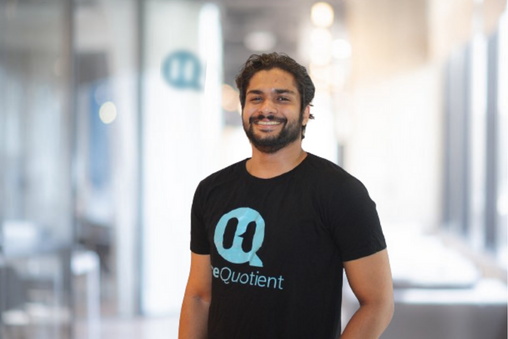How to Resolve Conflict in the Workplace: Interview Questions to Test Conflict Resolution Skills
Published on May 4th, 2025
As recruiters and hirers, your role extends beyond talent acquisition; it encompasses identifying individuals who possess the skills to navigate and resolve conflicts with finesse. In this comprehensive guide, we delve into the art of assessing conflict resolution skills during interviews by unveiling a range of strategic and effective interview questions. By arming yourself with these powerful questions, you empower your organization with individuals who possess the expertise to steer teams towards unity and success.
Understanding Conflict Resolution: A Prelude to Effective Interviews
Before delving into the interview questions, it's crucial to grasp the essence of conflict resolution. Conflict resolution involves addressing disputes, disagreements, or differences in a constructive manner, ultimately reaching a resolution that benefits all parties involved. As recruiters and hirers, you play a pivotal role in identifying candidates who possess the aptitude and mindset to resolve conflicts while nurturing a harmonious work environment.
How to resolve conflict in the workplace- Interview questions
During interviews, crafting questions that illuminate a candidate's conflict resolution skills is an art that requires careful consideration. These questions not only shed light on a candidate's ability to navigate conflicts but also offer insights into their communication, problem-solving, and interpersonal skills. Let's dive into a selection of strategic interview questions:
1. How do you approach conflicts in the workplace? Can you share an example of a successful conflict resolution you've been a part of?
This open-ended question encourages candidates to reflect on their conflict resolution approach and experiences. Look for candidates who demonstrate a proactive and positive approach, emphasizing collaboration, empathy, and effective communication in their responses.
2. Describe a situation where you had to mediate a conflict between team members. How did you approach the situation, and what was the outcome?
This question assesses a candidate's ability to mediate conflicts and guide others towards resolution. Candidates who showcase strong mediation skills, active listening, and the ability to find common ground are likely to excel in conflict resolution roles.
3. How do you handle disagreements with colleagues or supervisors? Can you share a time when you successfully resolved a disagreement?
Candidates who acknowledge the inevitability of disagreements while emphasizing their commitment to respectful and constructive communication stand out. Look for instances where candidates demonstrate their ability to remain composed, address concerns, and collaboratively find solutions.
4. Can you provide an example of a challenging conflict you encountered in a team project? How did you contribute to resolving it?
This question offers insights into a candidate's teamwork and problem-solving skills. Candidates who share instances of taking initiative, seeking input from others, and adapting their approach to achieve resolution showcase valuable conflict resolution qualities.
5. How do you manage emotions during conflicts? Can you share a time when you effectively de-escalated a tense situation?
Assess a candidate's emotional intelligence and ability to manage their own emotions and those of others. Look for candidates who demonstrate self-awareness, empathy, and the capacity to diffuse tensions in a respectful manner.
6. In your opinion, what role does effective communication play in resolving conflicts? Can you provide an example where clear communication led to conflict resolution?
This question probes a candidate's understanding of the pivotal role communication plays in conflict resolution. Candidates who emphasize the importance of active listening, clarity, and transparency showcase a strong foundation for effective conflict resolution.
7. How do you handle situations where compromise is necessary to resolve conflicts? Can you describe a scenario where you successfully reached a compromise that satisfied all parties involved?
Candidates who recognize the value of compromise and demonstrate their ability to balance diverse interests while achieving resolution are well-equipped for conflict resolution roles. Look for candidates who present examples of mutually beneficial outcomes.
8. Describe a time when you took proactive steps to prevent a potential conflict from escalating. What strategies did you employ, and what were the results?
Candidates who exhibit a proactive approach to conflict resolution and share strategies for prevention are likely to contribute to a conflict-resilient work environment. Seek candidates who demonstrate foresight, communication skills, and the ability to diffuse tensions before they escalate.
In the journey of building cohesive and high-performing teams, conflict resolution skills stand as a beacon of leadership and collaboration. By incorporating these strategic interview questions into your recruitment process, you ensure that your organization is enriched with individuals who possess the expertise to navigate conflicts with finesse, nurture open communication, and transform discord into opportunities for growth. You can enhance the quality of your work environment by focusing on work-life balance as well. As recruiters and hirers, you hold the power to shape a conflict-resilient work culture—one where conflicts are viewed not as obstacles, but as stepping stones towards innovation, unity, and shared success.
Authors

Thomas M. A.
A literature-lover by design and qualification, Thomas loves exploring different aspects of software and writing about the same.
Hire the best without stress
Ask us how
Never Miss The Updates
We cover all recruitment, talent analytics, L&D, DEI, pre-employment, candidate screening, and hiring tools. Join our force & subscribe now!
Stay On Top Of Everything In HR

